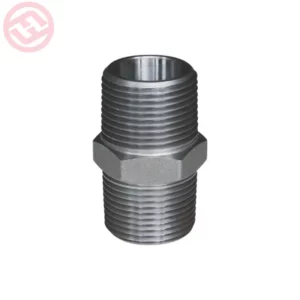Class 3000 pressure rating refers to a pressure rating commonly associated with fittings used in high-pressure piping systems. These fittings are designed to withstand pressures up to 3000 pounds per square inch (psi). The materials of construction for manufacturing Class 3000 pressure rating fittings vary depending on the specific requirements of the application and the compatibility with the fluid being conveyed.
Some typical materials used for manufacturing Class 3000 pressure rating fittings include:
- Carbon Steel: Carbon steel is a commonly used material for Class 3000 pressure rating fittings due to its strength, durability, and affordability. It is suitable for a wide range of industrial applications and is available in various grades, such as ASTM A105.
- Stainless Steel: Stainless steel fittings are preferred for applications requiring corrosion resistance or compatibility with aggressive fluids. Grades such as 304 and 316 stainless steel are commonly used for Class 3000 pressure rating fittings in industries such as chemical processing, oil and gas, and food processing.
- Alloy Steel: Alloy steel fittings offer enhanced mechanical properties and resistance to high temperatures and pressure. Grades such as ASTM A182 F11, F22, and F91 are commonly used for Class 3000 pressure rating fittings in applications requiring elevated temperature and pressure capabilities.
- Brass: Brass fittings are suitable for applications requiring corrosion resistance, ductility, and ease of machining. They are commonly used in plumbing, HVAC, and industrial applications where moderate pressure ratings are sufficient.
- Copper Nickel: Copper nickel fittings offer excellent corrosion resistance, especially in marine and seawater environments. They are commonly used for Class 3000 pressure rating fittings in offshore, shipbuilding, class 3000 pressure rating and coastal applications.
- Duplex Stainless Steel: Duplex stainless steel fittings offer a combination of high strength, corrosion resistance, and toughness. They are suitable for demanding applications such as offshore oil and gas production, chemical processing, and desalination plants.
- Nickel Alloys: Nickel alloy fittings, such as Inconel, Monel, and Hastelloy, offer exceptional corrosion resistance and high temperature capabilities. They are used in highly corrosive and high-temperature applications in industries such as chemical processing, aerospace, and power generation.
- Titanium: Titanium fittings offer a combination of high strength, low weight, and corrosion resistance. They are used in aerospace, marine, and chemical processing applications where lightweight and corrosion-resistant materials are required.
These are some of the typical materials used for manufacturing Class 3000 pressure rating fittings. The selection of the appropriate material depends on factors such as the operating conditions, fluid properties, environmental factors, and regulatory requirements of the specific application.
